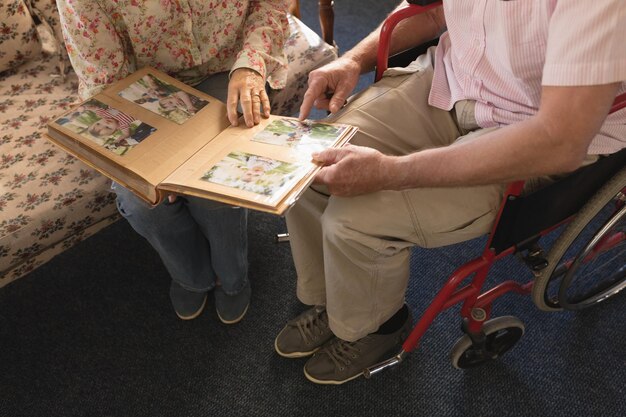New Federal Grants for Caregivers: Deadline Jan 31st

New federal grants for caregivers are available with a deadline of January 31st, offering financial assistance and support for those providing essential care to family members.
Are you a caregiver providing essential support to a loved one? The clock is ticking on a crucial opportunity. New federal grants for caregivers, aimed at easing the financial strain and providing much-needed resources, are available, but you must apply before the January 31st deadline. Don’t miss out on the chance to access these new federal grants for caregivers: apply before the January 31st deadline.
Understanding the Urgency: Why Apply Now for Caregiver Grants
The January 31st deadline isn’t just an arbitrary date. It represents a crucial window of opportunity for caregivers to secure financial assistance that can significantly impact their lives and the lives of those they care for. Understanding the urgency and acting promptly is paramount.
The Significance of the Deadline
Missing the deadline means missing out on potential financial relief. These grants often have limited funding, and once the allocation is exhausted, the opportunity is gone. For many caregivers, these funds are essential for covering expenses related to caregiving.
What’s at Stake
Consider the potential benefits lost by delaying or skipping the application process. These grants can help with:
- Paying for respite care, allowing caregivers to take much-needed breaks.
- Covering the costs of medical supplies and equipment.
- Funding home modifications to make caregiving easier and safer.

Don’t let procrastination prevent you from accessing these valuable resources. Take the time to gather the necessary documents and complete the application before the deadline arrives.
In short, understanding the urgency and acting before the January 31st deadline is vital for anyone seeking financial assistance through these federal caregiver grants. The benefits are significant, and the opportunity is time-sensitive.
Who is Eligible for the New Federal Grants for Caregivers?
Eligibility for these new caregiver grants typically depends on various factors, including the caregiver’s relationship to the care recipient, the care recipient’s medical condition, and the caregiver’s income level. Let’s detail the eligibility criteria.
Key Eligibility Requirements
While specific requirements may vary depending on the grant program, common eligibility criteria often include:
- Being a family member (spouse, child, sibling, or other relative) providing care to an individual with a chronic illness, disability, or age-related condition.
- The care recipient meeting certain medical or functional criteria, such as requiring assistance with activities of daily living (ADLs) like bathing, dressing, and eating.
- Meeting income eligibility thresholds, which are designed to prioritize those with the greatest financial need.
Specific Considerations
Some grants may also have additional requirements, such as:
- Residency requirements, mandating that the caregiver and care recipient reside in the same state or region.
- Restrictions on the types of care provided, with some grants focusing on specific conditions like Alzheimer’s disease or cancer.
Caregivers should carefully review the eligibility criteria for each grant program they are interested in to ensure they meet all requirements.
Ultimately, understanding the eligibility criteria is essential for determining whether you qualify for these federal caregiver grants. Review the requirements carefully to avoid wasting time on applications you are not eligible for.
What Expenses Can These Grants Cover?
The new federal grants for caregivers are designed to alleviate the financial burdens associated with providing care. These grants can cover a wide range of expenses that caregivers commonly face.
Eligible Expenses
Generally, these grants can be used to cover expenses such as:
- Respite care to allow caregivers to take a break from their duties
- Medical supplies and equipment, such as wheelchairs, walkers, and incontinence products
- Home modifications to make the home accessible, such as ramps, grab bars, and accessible showers
Additional Coverage
In some cases, grants can also be used for:
- Transportation costs, such as gas or public transportation fares, to transport the care recipient to medical appointments
- Caregiver training and education to improve caregiving skills
- Assistive technology to help the care recipient with daily tasks
Carefully examine the grant guidelines to see what expenses it will cover. Some grants cover a broad range of expenses, while others target specific areas of need.

In summary, these grants are a tool to help cover the costs associated with caregiving, enabling caregivers to provide the best possible care for their loved ones. Understand what your needs are and what grants can help cover.
How to Find and Apply for Federal Caregiver Grants
Finding and applying for federal caregiver grants can seem like a daunting task. With so many programs available, knowing where to start and how to navigate the application process is crucial.
Locating Grant Opportunities
Start by exploring these resources:
- Grants.gov: This is the official website for federal grant opportunities. You can search for grants specifically targeted toward caregivers.
- Area Agencies on Aging (AAA): AAAs are local organizations that provide services and resources for older adults and their caregivers. They often have information about available grant programs.
- National Family Caregiver Support Program (NFCSP): This program provides grants to states to support family caregivers. Contact your local aging and disability resource center to learn about NFCSP-funded programs in your area.
Applying for Grants
Once you’ve identified potential grant opportunities you need to:
- Review the eligibility criteria: Ensure that you meet all requirements before starting the application process.
- Gather required documentation: Common documents include proof of income, medical records, and a care plan.
- Complete the application carefully: Fill out each section accurately and thoroughly. Proofread your application before submitting it.
By using available resources like Grants.gov and local Area Agencies on Aging, caregivers can identify and apply for federal grant programs. Careful planning and preparation will increase your chances of success and unlock much-needed financial assistance.
Navigating the Application Process: Tips and Best Practices
The application process for federal caregiver grants can be complex, but with the right strategies, you can increase your chances of success. Let’s walk through how to approach the process.
Getting Started
- Start Early: Don’t wait until the last minute to begin the application process. Give yourself plenty of time to gather the necessary documents and complete the application carefully.
- Read the Instructions Carefully: Pay close attention to the instructions provided with the application. Make sure you understand all requirements and guidelines.
Building a Strong Application
Key things to consider when filling out the application:
- Be Thorough: Provide complete and accurate information in all sections of the application. Don’t leave any questions unanswered.
- Highlight Your Needs: Clearly articulate your financial needs and how the grant funds will help you provide better care for your loved one.
By following these tips and best practices, caregivers can navigate the application process with confidence and improve their chances of securing much-needed financial assistance. Attention to detail and adherence to guidelines are vital for a successful application.
What Happens After You Apply: Understanding the Review Process
After submitting your application for a federal caregiver grant, it’s essential to understand what happens next. Knowing the review process can help you manage expectations and prepare for potential follow-up requests.
The Review Process
The review process may involve:
- Initial Screening: Your application will be reviewed to ensure that you meet all eligibility requirements and that all required documentation is included.
- Merit-Based Review: Applications that meet the initial screening criteria will be evaluated based on a set of merit-based criteria, such as financial need, the severity of the care recipient’s condition, and the potential impact of the grant funds.
- Funding Decisions: Based on the merit-based review, funding decisions will be made. Not all applicants will receive funding.
| Key Point | Brief Description |
|---|---|
| ⏰ Deadline | January 31st is the final date to apply for federal caregiver grants. |
| ✅ Eligibility | Family caregivers of individuals with chronic conditions may qualify. |
| 💰 Expenses | Grants can cover respite care, medical supplies, and home modifications. |
| 🔎 Resources | Grants.gov and Area Agencies on Aging are good places to find grants. |
Frequently Asked Questions (FAQ)
▼
The deadline to apply for these new federal caregiver grants is January 31st. Be sure to submit your application before this date to be considered for funding.
▼
Eligibility typically includes family members caring for individuals with chronic illnesses or disabilities. Specific criteria may vary, so check the grant requirements.
▼
These grants may cover a range of expenses, including respite care, medical supplies, home modifications, and caregiver training. Review the grant guidelines for specifics.
▼
Start by visiting Grants.gov, the official website for federal grant opportunities. You can also contact Area Agencies on Aging for local resources and assistance.
▼
After you submit your application, it will undergo a review process. This includes an initial screening and a merit-based review. Funding decisions will be made based on these evaluations.
Conclusion
The **new federal grants for caregivers: apply before the January 31st deadline** offer a vital lifeline for those dedicated to caring for their loved ones. By understanding the eligibility requirements, eligible expenses, and application process, caregivers can seize this opportunity to access much-needed financial assistance. Don’t wait – take action now and ensure you submit your application before the deadline.





